Afghanistan War, Civil Liberties, Criminalizing Dissent, FBI Intrusion, Human Rights, Prison Industry, Supreme Court, Surveillance, Targeting Muslims
Podcast: Play in new window | Download
Updates:
——
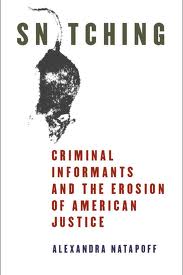
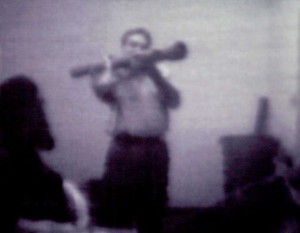
Snitching: Criminal Informants and the Erosion of American Justice
The FBI now spends more than 3 billion dollars a year on counter-terrorism, the bureau maintains a team of 15 thousand spies in a nationwide network of informants. Criminal informants or snitches are part of a criminal system most people know little about. Many of these informants are tasked with infiltrating Muslims communities in the United States. We’ve discussed in the past, the expanded FBI guidelines plus the broad over reaching powers and underhanded tactics the FBI use when targeting Mosques and Muslim Americans.
We talk today with Professor of Law and author Alexandra Natapoff, about her book Snitching: Criminal Informants and the Erosion of American Justice. Her book catalogues the downside in the use of snitches on social structure and democracy and suggests ways to make the use of informants acceptable within the criminal justice system.
Professor Alexandra Natapoff:
- Snitching is such a massive part of our criminal justice system even though the public rarely gets a good look at it.
- It’s an under the radar aspect of the way our criminal justice system handles investigations, the way it handles cases, the way it shapes our case law.
- It’s such a powerful deal, a deal that exerts a huge amount of influence and plea bargaining.
- The reality is that this is a deeply under-regulated arena. The handler is the law enforcement official who creates and uses an informant.
- It could be a police officer talking to a street corner addict cutting a deal right then and there.
- It could be an FBI agent who has an established documented supervised relationship with a long term criminal informant.
- Somebody may be suspected of a crime or even just of interest to the government. People who have mild brushes with the criminal system can end up through this mechanism of criminal informing entering into a world in which really anything can happen to them.
- Argument: Either you let us use informants in an unaccountable, invisible, secretive, undocumented way or we can’t run the criminal system at all.
- We permit the barter of crime under the radar, in a way that is unfair to other defendants and other suspects. We produce unreliable information through the use of informants without regulation.
- My contention is that we shouldn’t ban this practice, but run it as any other public policy with transparency and accountability and some rules.
- My favorite criminal informant of recent is Jack Abramoff.
- Usually we don’t learn when informants have been mistreated because often they have very little power.
- The courts have said, informants proceed at their own risk.
- This is a deal that they can enter if they want to risk their life.
- The law does not owe criminal informants much protection. Our criminal system is built on the principle that the defendant should not have to face the government unaided by council.
- That’s a principle that should be extended to criminal informants.
- The state of Florida passed a ground breaking law, called Rachel’s Law.
- What sort of deal should we permit the government to cut with informants?
- The use of criminal informants is a massive source of error in capitol cases.
- States across the country are starting to impose greater restrictions on the use of criminal informants, in particular jailhouse snitches as a way to improving reliability of the information.
- Confidential Informant Accountability Act – Federal Legislative Proposal
- One of the things the government doesn’t keep track of is how many crimes are committed by criminal informants in the pursuit of investigating new cases.
Guest – Alexandra Napatoff, professor of Law at Loyola Law School, Los Angeles, and a member of the American Law Institute. I have also been a federal public defender, a community organizer, and the recipient of an Open Society Institute Community Fellowship.
————–
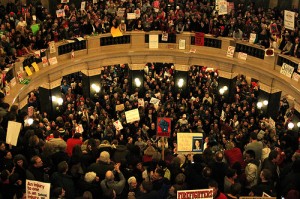
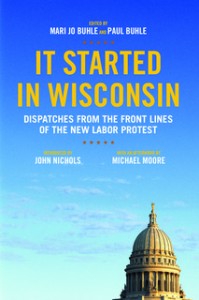
It Started in Wisconsin: Dispatches from the Front Lines of the New Labor Protest
Remember the multi-day occupation of the Wisconsin State Capitol by tens of thousands of people. Massive demonstrations erupted when the Republican controlled state government proposed to dismantle public employee bargaining rights as Wisconsin trade unions already conceded to wage and benefit cuts. These protests became the largest labor demonstrations in modern American history. Protesters from the Middle East sent pizzas and solidarity as thousands occupied Madison’s Capitol building.
We’re joined today by Paul Buhle, historian, and editor of the book It Started in Wisconsin: Dispatches from the Front Lines of the New Labor Protest. A powerful collecton of eyewitness reports and essays by striking teachers, students, and many others. This book exposes the corporate agenda that imposed anti-union legislation across the country and highlights the power of the people coming together in protest.
Paul Buhle:
- Brecht Forum, Friday night – April 27,2012
- The “it” is very large, perhaps vaporous and very promising. We were thinking of occupy in the sense that Madisonians, labor supporters from as far away as California, occupied the State Capitol, the rotunda in February of last year and remained there for some weeks.
- The “it” may mean occupy or the emergence of a new kind of movement.
- We should have seen it coming but we were deluded or Walker, when running for election never mentioned these promises or threats at all and made some statements about getting along with unions when he was a county executive.
- The response was just as stunning as the shock. A mass outpouring that really began with students in Stoten, an old Norwegian community about half an hour south of Madison – working up their own protests with facebook to support their teachers.
- And then, the following weeks, a massive outpouring of people around the Capitol and then occupying the Capitol.
- Things went on and on until there were crowds of 150 thousand in a town of Madison that has normally only 250 thousand residents.
- Pacifica has been in the business from the late 1940s in the Bay area, in providing the documentation that other commercial radio stations rarely provide.
- I would say these protests in Wisconsin are probably the most recorded mass movement of the Left in recent history.
- Among the most important developments, relative to the stories in the history of labor, the unions of public workers are substantially, if not overwhelmingly women.
- So, the shape of the movement, perhaps its cultural character, perhaps the infernal degree of politeness that outsiders frequently complained about, the chant – let us in, let us in please.
- What it demonstrated was that women in the labor movement were ferociously militant.
- My assessment was that the labor movement was in no way prepared to stage a general strike.
- Nor that a massive walk out of public workers mean that the wheels of industry would stop what few wheels are left.
- The sense that public workers wish to put pressure on the political system.
- Contrary to our expectations of the Democratic Party in general, assorted leaders, were quite wonderful in their constituencies and the things that they did, and how they related to the movements.
- As an editor and producer of radical comics, I’m always interested in new developments in the field, and its exciting there are young comic artists who are working in and around “occupy.”
Guest – Paul Buhle, senior lecturer at Brown University, a historian of American radicalism., a former member of Students for a Democratic Society and author of many books including images of American Radicalism. Also, Che, A Graphic Biography, and Isodore Duncan, a graphic biography by Sabrina Jones.
———–
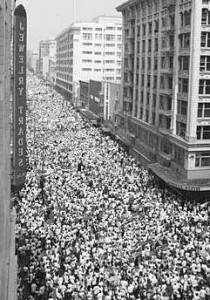
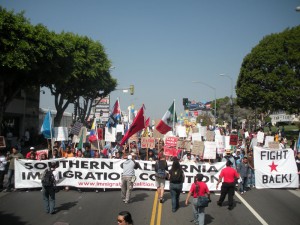
May Day: Workers’ Rights and Immigrant Communities
In the past year, public employees around the country have rallied to hold on to their collective bargaining, workers rights and pensions. May Day protests this year will emphasize these issues and will be especially significant for immigrant rights in California that directly effect certain communities. On May Day in 2006, hundreds of thousands took to the streets of San Jose marking one of the largest demonstrations in California history.
Guest – Celina Benitez, director of the Committee In Solidarity With the People of El Salvador, Celina is also with the Southern California Immigration Coalition and produces radio for Suplemento Comunitario on sister station KPFK in Los Angeles.
——————————————————-
Afghanistan War, Civil Liberties, Criminalizing Dissent, FBI Intrusion, Habeas Corpus, Human Rights, Iraq Veterans, Iraq War, Surveillance, Torture, War Resister
Podcast: Play in new window | Download
Updates:
————————–
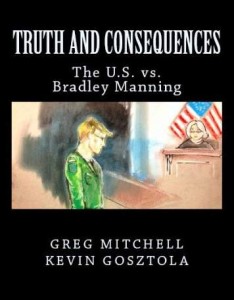
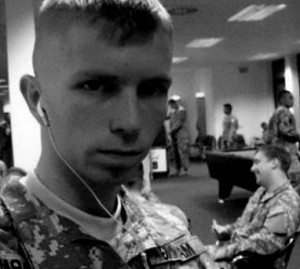
Truth and Consequences: The U.S. vs. Bradley Manning
In the past year, we’ve covered Wikileaks and specifically the Bradley Manning case in our updates. We talk today with Greg Mitchell co-author of the new published book, Truth and Consequences: The U.S. vs. Bradley Manning. In the first part of the book titled Solitary Man, Greg Mitchell gives readers a detailed look into the character of Bradley Manning. The second part of the book details the Bradley Manning trials written by co-author Kevin Gosztola. Hard journalism let the voices of friends and family document the important details in Manning’s life leading up to Wikileaks and then the book dives into the complexities of the trial. In the preface Greg writes “Ultimate truths, in this case, may lead to ultimate consequences for one who would not be silent.
Greg Mitchell:
- The second half of the book is really the only thing out there that covers in depth what has happened to him in the last few months.
- Namely his court martial proceedings after he was imprisoned for a year and a half. His first hearing was last December. He is awaiting what is expected to come out as a formal court martial in August. If it does start in August, it will be well over 2 years since he was arrested.
- A lot of the charges are related to passing along to Wikileaks, this classified secret information. Course the most dynamite charge is that he gave aid to the enemy.
- Who is the enemy? The government was forced to say that it was Al-Qaeda. That charge potentially carries the death sentence.
- They’re interested in punishing Manning, the big fish they’re after is Julian Assange.
- Last year there was global outrage when he was kept in solitary confinement, being forced to sleep naked, and stand at attention naked.
- All the top media outlets had a falling out with Wikileaks, and I think there’s a spill over from that.
- There hasn’t been any media coverage that really probes into what’s going on here.
- Over and over he (Bradley Manning) cited his outrage at what he was seeing in those cables and in Iraq, and things he was asked to participate in.
- The court martial will be extremely embarrassing to the military because they gave him access to these documents.
- He was a kid who grew up in Oklahoma, his parents eventually got divorced. He was a computer nerd, growing up. He realized in his teens, he was gay.
- He wasn’t a longtime peacenik or things like that, he always had some social conscience, and when he got to Iraq, he saw things that upset him.
- It may have never come out, that he would be arrested, except that he had these online chats with Adrien Lamo, who is a convicted hacker. Lamo decided Manning was talking too much about what he did and went to the authorities.
- The Manning case shows this incredible legacy of our wars in Iraq and Afghanistan, which have gone on for a decade, its never ending and yet the American public has never been brought face to face with what the US has done in those countries, civilian casualties.
Guest – Greg Mitchell writes daily for The Nation magazine’s web site. He is the author of more than a dozen books, including The Campaign of the Century (winner of the Goldsmith Book Prize), So Wrong for So Long: How the Press, the Pundits and the President Failed on Iraq, Why Obama Won, Tricky Dick and the Pink Lady, The Age of WikiLeaks, and with Robert Jay Lifton, Hiroshima in America and Who Owns Death? His most recent books are Atomic Cover-up and Journeys With Beethoven. He was the editor of Editor & Publisher from 2002 to 2009. He also served as longtime editor of Nuclear Times magazine, and before that was senior editor at the legendary Crawdaddy. Hundreds of his articles have appeared in leading publications and he has served as chief adviser for two award-winning documentaries.
—-

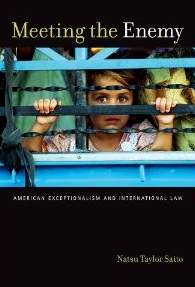
Lawyers You’ll Like – Attorney Natsu Saito
For our Lawyers You’ll Like series, we welcome back attorney and professor Natsu Saito. In our last interview, Professor Saito mentioned how the current system of international law evolved from the a broader agreement between the European colonial powers based on how they were not going to destroy each other in the process of taking over the rest of the world. It is this duality that Natsu writes about in her book Meeting the Enemy: American Exceptionalism and International Law. Professor Saito joined the College of Law faculty in 1994 and teaches international law, human rights, race and the law, immigration, criminal procedure, and professional responsibility. Her scholarship focuses on the legal history of race in the United States, the plenary power doctrine as applied to immigrants, American Indians, and U.S. territorial possessions, and the human rights implications of U.S. governmental policies, particularly with regard to the suppression of political dissent.
Professor Natsu Saito:
- The duality that the US does exempt itself (from international law) very consistently and very frequently and yet promotes international law very strongly and relies upon it.
- It has relied upon certain premises that are fundamental to the whole outlook and paradigm of colonialism – which is that there is a higher good, a more civilized approach the US embodies.
- The law doesn’t apply because we have a higher aim of civilization and that justifies not playing by the rules.
- The United States making others comply with human rights standards while exempting itself
- Moving humanity toward this higher goal is so critical because if you strip that away and you look at the realities on the ground, you see what has been termed Western civilization has been incredibly barbaric.
- In order to get around that analysis, you have to say it was for a higher good.
- I think the “left” tends to accept the general framework, and to make particular criticisms of policies and practices that are obviously problematic. The US government engaging in torture for example, but each instant is accepted as anomalous instead of the larger picture.
- It is too frightening even for the people on the left to deal with the reality that this is a country that sits on occupied land, illegally occupied by its own rules. People on the left want to make it a kinder, gentler colonialism.
- I started out thinking I was writing a book about the failure of the United States failure to comply with international law, as I got into it, the more interesting questions were the push / pull dynamics between reliance on international law
- The current system of international law evolved from the international law which was the agreement between the European colonial powers of how they were not going to destroy each other in the process of taking over the rest of the world.
Guest – Professor Natsu Saito, Department of Ethnic Studies, University of Colorado. Co-Sponsors: UCI Department of Asian American Studies; UCI Department of Planning, Policy, and Design; UCI Department of Criminology, Law and Society; The Center for Unconventional Security Affairs; The Center for Research on Latinos in a Global Society. Legal scholar Dr. Natsu Saito delivered a lecture on homeland security. Her lecture examined the implications of the USA Patriot Act on Civil liberties for immigrant groups and for the rest of the population
——————————————-
Civil Liberties, Criminalizing Dissent, FBI Intrusion, Human Rights, Supreme Court, Surveillance, Truth to Power, War Resister
Podcast: Play in new window | Download
Updates:
—
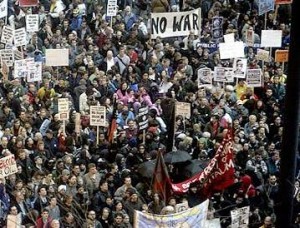
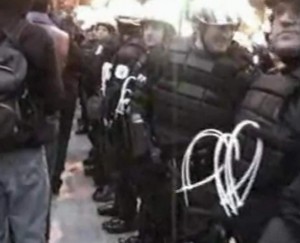
Vodak Settlement: Setting Precedence For Demonstrations
Attorneys with the National Lawyers Guild recently settled a class action lawsuit brought against the Chicago Police Department on behalf of protesters falsely arrested during a 2003 anti-war demonstration. On March 20 2003 nearly 10 thousand anti-Iraq War protesters marched through downtown Chicago before police surrounded a large group, trapping and arresting more than 700 people without ordering them to disperse. A Seventh Circuit ruling on the case (Vodak v. City of Chicago, 639 F.3d, 738 (2011)) held that police can’t arrest peaceful protesters without warning because the demonstration lacks a permit. This decision bears new weight in light of mass arrests within the Occupy movement. The National Lawyers Guild attorneys reached a 6.2 million dollar settlement in this case on the eve of a scheduled trial. The suit was litigated over the course of almost nine years by a team of NLG lawyers and legal workers including People’s Law Office attorneys Janine Hoft, Joey Mogul, Sarah Gelsomino, and John Stainthorp, as well as People’s Law Office paralegal Brad Thomson, and attorneys Melinda Power and Jim Fennerty.
Attorney Joey Mogul:
- We think it sends a significant message to Chicago and the Chicago Police Department that it must honor and respect people’s right to protest.
- It was the day that Bush had dropped bombs on Iraq. There was a massive out pouring of opposition, and people came down to the center of Chicago, to the Federal Plaza which is the heart of downtown. There were 10 thousand people and they marched on Lake Shore drive, and this was all permitted by the Chicago Police Department. This was a spontaneous demonstration, there was no written permit, but the CPD allowed it.
- Toward the end of the march, they decided that they wanted it to be over. They proceeded to surround everyone on Chicago avenue, and they prevented them from leaving, trapped them there for hours.
- They then proceeded to take over 500 people into police custody. 200 hundred were released, the rest were arrested with bogus phony charges of wreck-less conduct.
- They mass arrested everyone in that area including joggers and people shopping. It had an extremely chilling effect for people participating or near a demonstration.
- The message to the Chicago Police is that they cannot mass arrest people without giving orders to disperse.
- The new changes in the Chicago ordinances are very scary, it does allow for this increased surveillance of protesters and individuals seeking to protest.
- We’re very well aware of what the law is and we will seek to vindicate people’s constitutional rights.
—–
Brad Thompson:
- I’ve been working on this case since 2004, when I first started at the People’s Law Office.
- The work that I’ve done is a tremendous amount of discovery work in terms of going through the video work that was shot that night, by protesters, independent journalists, mainstream media and by the police.
- I did a lot in maintaining communication with class members. We had over 800 people that were taken into custody or held in the street for over 90 minutes.
- We did obtain over 250 affidavits by people who had their rights violated that night.
- The majority of protesters were from Chicago or the Greater Chicago area.
- I was one of the people taken into custody that night and released without being charged.
- I was witnessing the police aggressively arrest someone and I started to point and chant “shame” and then I became targeted. The police tackled me, and pulled me to my feet and struck me in the face which broke my nose and had a wound that required five stitches.
- I spent the night in jail bleeding all over myself.
Guest – Attorney Joey Mogul, partner at the People’s Law Office in Chicago and director of the Civil Rights Clinic at DePaul University’s College of Law. She focuses on civil rights cases involving police misconduct, criminal cases brought against individuals engaged in street demonstrations and other forms of First Amendment expression, and capital defense cases.
Guest – Brad Thompson, legal worker with the People’s Law Office in Chicago.
———–

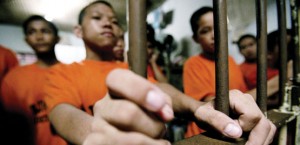
Locking Away Children For Life Without Parole
The United States is the only country in the world that sentences children to life, without the possibility of parole. Last month, the US Supreme Court revisited the question of whether juveniles convicted of murder should be given mandatory life sentences without the possibility of parole. The Supreme Court had once ruled against imposing death sentences on juveniles and imposing life sentences on youth who aren’t convicted of murder. Currently, 2500 kids in jail are serving life sentences without parole in the US. 371 of those individuals are in Michigan prisons. Our next guest has been working on a lawsuit on behalf of 9 Michigan individuals who were sentenced to life in prison for crimes committed when they were minors and who are being denied the possibility of parole.
Attorney Deborah LaBelle:
- The concept that we’ve been talking about that these are children both under international law and US law for civil matters, children are different from adults.
- The Supreme Court seemed to readily grasp that, they weren’t speaking about juveniles or teenagers or young adults, they spoke continuously on what to do about children who are involved in homicide crime.
- The court had two cases in front of them, both involving 14 year olds, one in which the 14 did not commit a homicide, but convicted of either felony murder or aiding and abetting.
- That juvenile got mandatory life without possibility of parole, because the child was sentenced as an adult, the other case, the 14 year old actually committed the homicide.
- There is a handful of states, Michigan and I think 8 others who treat 17 year olds always as adults for all purposes in the criminal justice system.
- Under the 38 states, there’s a whole range, some you can only get life without parole, if you’re 16 and up, some allow it for 15, some states allow it for a child of any age, Michigan is one of them.
- One of the justices talked about that. Is there an age in which we would all share a collective cringe. What about a 5 year old, what about a 10 year old.
- The frontal lobe area of the brain that really addresses impulse control and long term consequences, and control issues of risk management, is developing through adolescence.
- People draw the age at different points, some say not til 19, some not til 23 as you say.
- There’s a bright line in civil law that’s been drawn in civil law that youth have a maturity that they can vote, when they can decide to leave school, when they can drink in some places, when they can drive.
- There are these bright lines.
- Every other country who has signed on to the conventions of the rights of the child which prohibits putting children in prison for life without possibility of parole explicitly has recognized that this practice is banned.
- The only other country that hasn’t signed on is Somalia and they don’t quite have a government right now to do that.
- We stand alone in not adhering to that convention on the rights of the child as well as we stand alone on approving this sentence.
- We have over 2500 youth who are serving of life without any possibility of parole. About 70 percent are children of color. A third of them, did not commit homicides.
- No one is arguing that there might not be circumstances, that a state couldn’t decide upon review that child couldn’t be released. What the argument is, you can’t keep them in there without any hope. You have to give them an opportunity to demonstrate upon maturation that they have been rehabilitated and they aren’t a threat to public safety.
- We should think of putting children in places where we can nurture, council and believe in their rehabilitation and give them a second chance.
- I read transcript after transcript of judges saying, – listen I don’t want to do this to this 14 or 16 year old, but I don’t have any choice. What is the value of putting a child away with no hope. It’s certainly not a public safety issue, because that can be addressed by the state by having parole or review hearings.
Guest – Attorney Deborah LaBelle, an attorney with the ACLU of Michigan’s Juvenile Life Without Parole Initiative.
————————————————————
Civil Liberties, FBI Intrusion, Human Rights, Supreme Court, Surveillance, Truth to Power
Podcast: Play in new window | Download
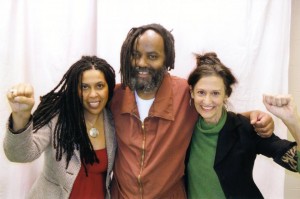
Heidi Boghosian Updates on Mumia’s Visit
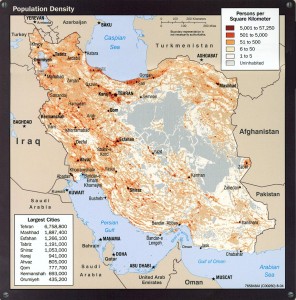

Iran: Sanctions and Syria
Israel and the United States continue to assert that Iran is enriching uranium to make nuclear weapons. As we’ve recently reported, the main stream media has followed lock step with this assertion by printing false claims and half truths about Iran’s nuclear facilities. Hinged on these false assertions, and baseless assumptions, sanctions are now being imposed by the EU and the United States against Iran.
Phyllis Bennis:
- The escalation of rhetoric, having nothing to do with reality, is boxing in a incredibly dangerous situation, in which political leaders are boxing themselves into situations they can’t walk back from.
- It’s a little bit different than the weapons of mass destruction, when you had leading neocons in those positions, in the pentagon, in the CIA, saying there is no question, there are WMDs.
- They were all lying. The difference here is that the key people in these positions are saying directly we don’t even know whether Iran has even decided in this case to build a nuclear weapon.
- At the same time, they’re allowing this unquestioned ratcheting up of the rhetoric for purely political motivations.
- We’re seeing the same situation in Israel.
- The main factor right now is Israel. The US Congress, the US press, are responding to these false claims from Israel that Iran represents an existential threat.
- The role of the Israeli lobbies is an old story.
- Republicans are saying Obama is soft on Iran. In that context an election year there’s no way that President Obama is going to be willing to walk back from this escalating rhetoric that we heard right before the superbowl on Sunday night.
- I’m always astonished when I hear it from anybody, that after the war in Iraq, after the war in Afghanistan people somehow still have the idea that you can just go in with a few air strikes and that’ll be all it takes.
- There are inspectors on the ground, they’re watching 24/7 video from inside the enrichment centers.
- If Iran wanted to the divert the enriched uranium for weapons purpose, they would have to kick out the inspectors, or slash the locks that the inspectors put in, either way the world would know about it within hours.
- War with Iran, should be off the table.
- I don’t think its inevitable. I think its 70/30 right now. Meanwhile, nobody’s going to think about pressuring Israel on the issue of Palestine.
- There ha’ve been 5 high profile assassinations of Iranian nuclear scientists.
- Syria: On the one hand you have an incredibly repressive regime, responding to a domestic uprising with amazing horrifying levels of force. And parts of the resistance taking up arms in response.
- Syria is a strategic ally of Russia. For Russia that is the most important thing.
Guest – Phyllis Bennis, director of the New Internationalism Project at the Institute For Policy Studies. She is also a fellow of the Transnational Institute in Amsterdam. Phyllis has been a writer, analyst, and activist on Middle East and UN issues for many years. In 2001 she helped found and remains on the steering committee of the U.S. Campaign to End Israeli Occupation. Phyllis is also the author of many books including Understanding the US-Iran Crisis: A Primer (2009).
—–
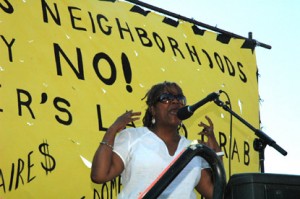
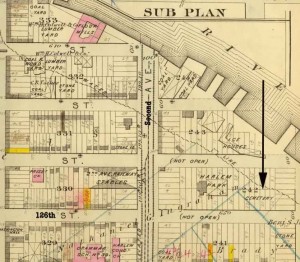
3 Year Evaluation of the Obama Administration
The Obama Administration has expanded wars abroad from Iraq, Afghanistan, Pakistan, Yemen and Libya. It’s continued and expanded detention policies for Guantanamo Bay prisoners and US citizens. Wall Street and big banks have been bailed out and the Healthcare bill was used a bargaining chip for insurance companies. The cautious optimism that progressives and the African American community initially had for the Obama Administration is long gone. However, there were some that were never taken in or mesmerized by the possibility of hope. Our guest today, Nellie Hester Bailey calls this administration a browner hue of imperialism and asks how long can people be herded like sheep into this nightmare of compromise. We welcome her back to the show, she’s a long time human rights activist from early organizing with the Student Non-violent Coordinating Committee, to tenant rights and anti-war demonstrations, to advocacy on behalf of women, Bailey has been at the forefront of social justice and social change organizing. We look back at the last 3 years of the Obama Administration and take a look ahead.
Nellie Hester Bailey:
- President Barack Obama, he is a gatekeeper for imperialism.
- They chose him to be their standard bearer for this new era of redefined politics down to this humanitarian intervention I think has proven to be the worst of any forboding that in fact in goes beyond the right wing politics of President Bush.
- Sidetracking OWS: This new movement Occupy the Dream making it an extension of the Democratic Party. This cooptation process is in full throttle.
- One would hope that this Occupy Wall Street above all would retain its independency.
- 2008 Presidential Election: Extremely promising because it gave the appearance of the attempt of the government to face head on the entrenched and historic racism in this country.
- A very powerful symbol of the a black family in the Whitehouse and what that would mean in the public consciousness on race here in America.
- Once Barack Obama was elected president to the US, it did give rise to a paralysis of the movement.
- What we saw with the advent of the Occupy movement was the stimulation of white America to fight back against the anti-working class measures coming down.
- The Occupy movement was our own Arab Spring, if you will by the communities coming under increasing assault.
- There is a direct action working group within the Occupy Wall Street movement that recently announced it was laying out a six month plan of action.
- One would hope that would be independent of the Democratic Party.
- The conditions on the ground have began to organize people and effect their consciousness.
- I do not believe that capitalism can be reformed.
- We need a new political paradigm that is founded on principles of humanity, on principle of respect to the environment, an anti-war principle, the respect of sovereign nations.
- Radio Show: Inside Housing on WHCR 90.3 FM. Mondays 6-7PM – The Voice of Harlem.
Guest – Nellie Hester Bailey, is a human rights activist who has worked in peace and justice movements for over forty years. From her early organizing with the Student Non-violent Coordinating Committee, to tenant rights and anti-war struggles, to advocacy on behalf of women Bailey has been at the forefront of social justice and social change organizing. Bailey co-founded the Harlem Tenants Council (HTC) in 1994. She currently serves as Director of the tenant led grassroots organization based on the self-determination tradition of radical activism that provides anti-displacement organizing for poor and working class families primarily in Central Harlem.
————————————–
Civil Liberties, Criminalizing Dissent, FBI Intrusion, Human Rights, Political Prisoner, Prison Industry, Surveillance, Targeting Muslims, Truth to Power
Podcast: Play in new window | Download
Updates:
—-
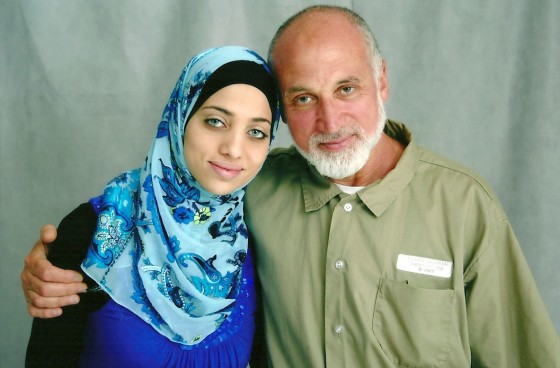
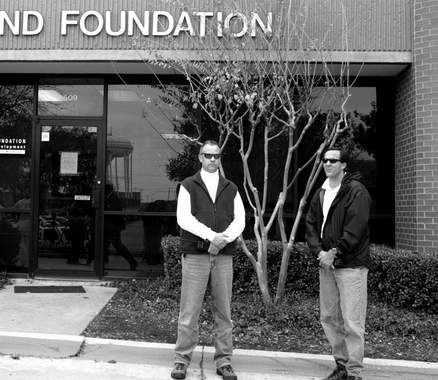
Appeal Denied In Holy Land Foundation Case
Last week, the Fifth Circuit dismissed the appeal for the Holy Land Foundation case. This decision affirmed the conviction of Ghassan Elashi, the co-founder of the Holy Land Foundation for Relief and Development. As many listeners may know, the Holy Land Foundation was considered the largest Muslim charity in the United States before the Bush administration shut it down after the September 11 attacks. In May 2009, a federal judge in Dallas handed down sentences ranging from 15 to 65 years in prison to five of the charity’s founders and former fundraisers. Over a year before, a federal jury returned guilty verdicts on all 108 counts against the Foundation and the five former officers on charges of providing material support to Hamas after the U.S. government designated it a foreign terrorist organization in 1995. During that trial, the prosecution used unrelated video of suicide bombers to emotionally sway the jury.
Ghassan Elashi was then sentenced to 65 years in prison for giving material support in the form of humanitarian aid to Zakat committees – Palestinian charities in the West Bank and Gaza, that prosecutors were alleging were fronts for Hamas. Ghassan is being held in the Communications Management Unit in Marion, Illinois.
Noor Elashi:
- One of the arguments the defense lawyers made is that USAID, which is a government agency sent money to the same exact Zakat Committees which are these distribution centers in Palestine that the Holy Land Foundation sent charity to.
- That was their main charge, they were charged with giving material support in the form of humanitarian aid to Zakat Committees which the prosecutors were claiming were fronts for Hamas.
- In their appeal, one of their main arguments is that these Zakat Committees received money from many NGOs including an American agency.
- Another argument in the appeal was for the first time in US history, an expert witness who was an Israeli intelligence officer who testified under a fake name was allowed to testify under a pseudonym.
- My father recently had a phone call ban, because he put his name on a yoga mat, and it was considered destruction of government property.
- Our defense attorneys are not going to quit. They will ask the entire panel of appellate judges to re-hear the case, if that is denied, they’ll take the case to the Supreme Court.
- The foreign policy and politics of this country have been very favorable to Israel.
- FreedomToGive.com
Guest – Noor Elashi – the daughter of Holy Land Foundation prisoner Ghassan Elashi. She is a writer based in Dallas, Texas. After receiving a Bachelor’s degree in journalism from the University of North Texas, she worked for the Fort Worth Star-Telegram. In July 2008, she won the 3rd place Mayborn Literary Nonfiction Award for her manuscript titled “Displaced,” which she plans to expand into a memoir about the displacement of three generations of Palestinians: her grandmother, father, and herself. She can be reached at noorelashi@gmail.com.
—–
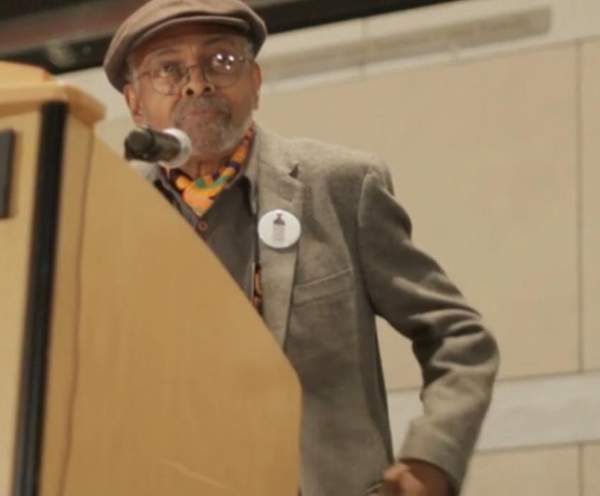
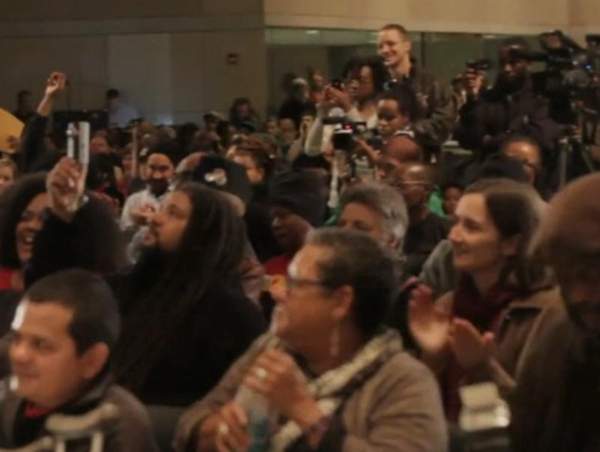
Event In Philadelphia Marks 30 Years of Mumia Abu-Jamal’s Incarceration
On December 7, the Philadelphia District Attorney’s Office announced that it will not seek another death sentence for Mumia Abu-Jamal. Under Pennsylvania law, Mr. Abu-Jamal will now be sentenced to life imprisonment without the possibility of parole in the Philadelphia County Court of Common Pleas. The National Lawyers Guild commented that while there is overwhelming doubt about what the state claims to be the facts in this case, even those allegations never supported a capital charge. That it has taken three decades to remove death from the table is astonishing.
The Guild has long maintained that Mr. Abu-Jamal is entitled to a new and fair trial. Procedural irregularities plagued his case from the outset, including blatant constitutional violations, from the judge allowing the prosecution to admit evidence of his affiliation with the Black Panther Party, in violation of the Supreme Court case Dawson v. Delaware, to the use of a faulty sentencing form that misled jurors during the penalty phase, in violation of the Supreme Court case Mills v. Maryland.
A great deal of relevant evidence has never been reviewed by any court, much less presented to a jury. This evidence includes several photographs of the crime scene which impeach the testimony of a police officer who was a key eyewitness and proof that another individual was present, and fled, the scene of the shooting.
Mr. Abu-Jamal was charged at a time when, it was later revealed, there was extensive corruption within the Philadelphia Police Department. In 1995, then-District Attorney Lynne Abraham promised the city that she would dismiss any case in which there was evidence of police perjury or purposeful misreporting of facts. Given the history of police misconduct in Philadelphia when Abu-Jamal was arrested, and the specific instances of police perjury in his case, the National Lawyers Guild has urged current District Attorney Seth Williams to act on his predecessor’s unfulfilled pledge.
Two days after the DA’s announcement, and commemorating International Human Rights Day, a free forum was held at the National Constitution Center in Philadelphia to mark the 30th anniversary of Mumia Abu-Jamal’s incarceration, justice. Twelve-hundred Mumia supporters met to reinvigorate the movement for justice for Abu-Jamal and to say no to life in prison for the political prisoner. “Because for 30 years Abu-Jamal has been unconstitutionally imprisoned in death row torture, justice for Mumia will not be served by life imprisonment, but by freedom,” said Dr. Johanna Fernandez, professor of history at Baruch College of the City University of New York and a co-producer of the forum. Fernandez wrote and produced a documentary, which debuted at the Constitution Center in 2010 on Abu-Jamal’s case. “Justice on Trial: The Case of Mumia Abu-Jamal,” examines evidence pointing to Abu-Jamal’s innocence and exposes the inequities of the American justice system.
Speakers:
The December 9 forum was co-sponsored by Educators for Mumia Abu-Jamal, the National Lawyers Guild and International Family and Friends of Mumia Abu-Jamal.
———————————
CIA Sponsored Terror, Civil Liberties, Criminalizing Dissent, FBI Intrusion, Habeas Corpus, Human Rights, Truth to Power
Podcast: Play in new window | Download
Updates:
- Chilean Judge Indicts US Military Official in 1973 Killings – CCR Case
- Newt Gingrich: “Water Boarding Is By Every Technical Rule, Not Torture.”
- Michael Ratner: S.1867 — National Defense Authorization Act for Fiscal Year 2012
—–
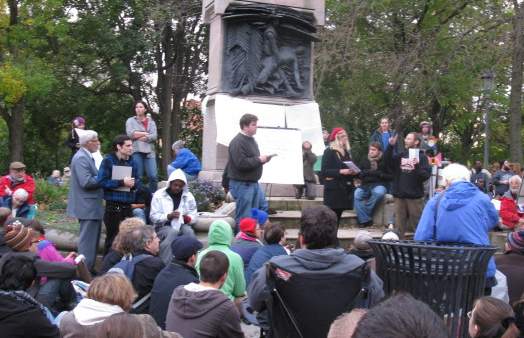
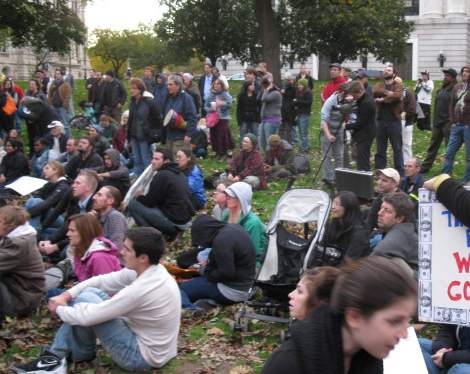
Occupy Albany: Undisturbed By City Officials
The collusion among mayors and police departments around the country to raid and take down Occupy Wall Street movements by force has revealed a particular hierarchy of control. However, as listeners may know there is a unique situation with the Occupy Wall St solidarity movement in Albany, New York. Despite the request of New York Governor Andrew Cuomo and Albany mayor to shut the encampment down at Academy Park, the police refused, then the State Troopers refused. In a memo obtained by the The Times Union, Albany Police Deputy Chief Steven Krofoff stated “At this time I have no intention of assigning officers to monitor, watch, videotape or influence any behavior that is conducted by our citizens peacefully demonstrating in Academy Park.
Attorney Mark Mishler:
- The Governor a few days before the occupation started met with the city of Albany office and as best as we can figure out at that meeting sort of all agreed that this wasn’t going to be permitted.
- It seemed to be permitted that people would not be able to stay past the 11PM curfew at the park.
- We have two very independent minded folks in law enforcement here.
- They took a different view. We have a District Attorney David Soares, who was independently elected as an opponent to the Albany County machine and with a lot of grassroots support.
- David Soares say he wasn’t interested in using his office to prosecute peaceful protesters.
- In correlation with that our police chief in the city of Albany, who also came into office as result from a grassroots movement for improved police / community relations. He also said he didn’t want to use the resources of his department to arrest peaceful protesters.
- The mayor who we believe really wanted to carry out the governor’s direction was really boxed into a corner and couldn’t do that.
- The park is really 2 parks, half of the park is city owned, the other half is state owned.
- We’re now in the sixth week, there are now about 50 tents.
- Essentially completely undisturbed by city officials.
Guest – Mark Mishler, attorney and National Lawyers Guild member.
————–
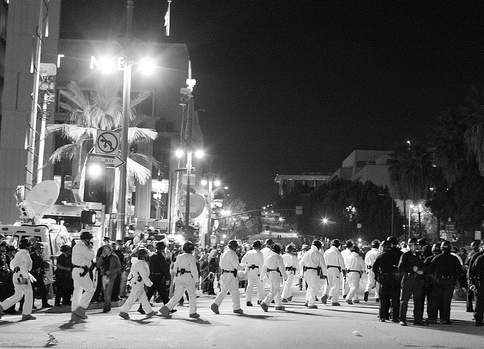
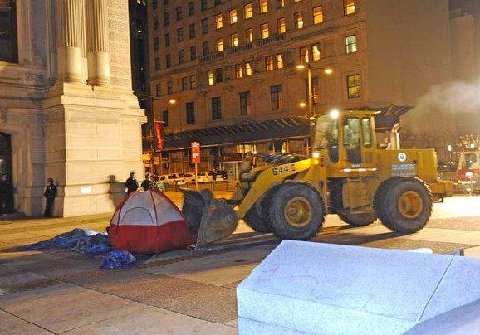
Occupy Los Angeles Legal Action
Occupy Los Angeles and Occupy Philadelphia were among the encampments forcibly removed last week. Occupy LA demonstrators had expected to be evicted after the mayor announced that the park would be closed at 12:01 a.m. on Monday last week. Late the following night, police in riot gear stormed the encampment and dozens were arrested as protesters chanted and stood defiant through the raid. The more than 500 tents have been taken down. The encampment at Philadelphia’s Occupy Wall Street movement was also raided after demonstrators marched to protest their eviction. Up to 40 protesters were arrested.
Hours after the Occupy Los Angeles eviction deadline protesters filed for a federal injunction that would prevent the police from dismantling the occupation in Oakland Park. The city, mayor and chief of police are named in the lawsuit as defendants. The complaint also says the city engaged in “arbitrary and capricious action in violation of the 1st and 14 Amendments by first approving the Occupy presence for 56 days before suddenly revoking permission through the unilateral action of defendants.
Attorney Carol Sobel:
- We filed papers, we argued that the mayor’s actions were unlawful because the City Council of Los Angeles passed a resolution saying that they could stay there.
- The Council, only the Council has the authority to do that.
- Once that Council acts, he could veto it, he chose not to at the time, back in October, or he could get it rescinded. He chose not to.
- Our position is, the Mayor can’t make up the rules as he goes along.
- This is a public forum, we’ve had anti-war marches here, marches to protest the Pope when he came.
- The mayor used to be friend. The Mayor went to the same Guild law school that I did.
- I think that the Mayor is bought and paid for by the developers in Los Angeles. Somebody said to me last night, he’s lost his soul.
- He’s not progressive by any definition of that term. He is the head of the US Conference of Mayors.
- It looks bad for him I guess to have the largest Occupy in the country, in his city, at his doorstep.
- They (LAPD) have agreed that they will not come out with a show of force, unless and until it’s needed.
- If you can’t close the park after the fact, then these arrests were all unlawful.
Guest – Civil rights attorney Carol Sobel, a legal advisor for Occupy protests across the country. Carol Sobel is listed as the attorney on the new complaint.
—
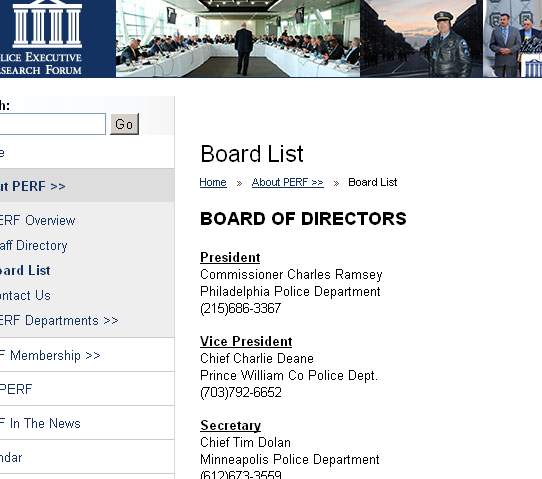
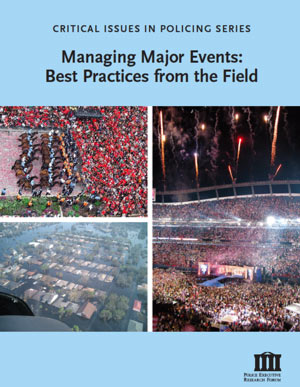
Collusion in the Defense of the 1% is No Vice
As mayors of cities across the country colluded to crackdown on the OWS encampments, an international non-governmental organization had coordinated with police chiefs and mayors behind the scenes. The group is called the Police Executive Research Forum, it is an influential private membership based organization that is marketed to heads of major metropolitan areas as specialists with mass demonstrations. The group has ties to the US Department of Homeland Security and their general membership in the group is exclusive to former executives leading a state or county funded agency that provided police services.
Geov Parrish:
- The Occupy Seattle movement is community college property.
- The community college let them stay there but at first it was a public square and it was a cat and mouse game with the police.
- From November 4-10, there were conference calls. Much of the local media coverage was very coordinated.
- This smacks of the operations of some of the high ranking people the PERF has been associated with.
- The PERF actually does research on less then lethal weaponry, such as the pepper spray that has been used in lots of different cities.
- Charles Ramsey, Philadelphia Police Commissioner and the chair of PERF’s board of directors is also on the Homeland Security Advisory Council as are a couple of other board members from PERF.
- There’s an entire industry that has sprung up around the militarization of the police forces. The routine use of SWAT teams now for even non threatening situations.
Guest – Geov Parrish, a Seattle-based columnist and reporter. He writes the Straight Shot column for WorkingForChange. Parrish also wrote the article Collusion in the Defense of the 1% is No Vice.
——————————————




























